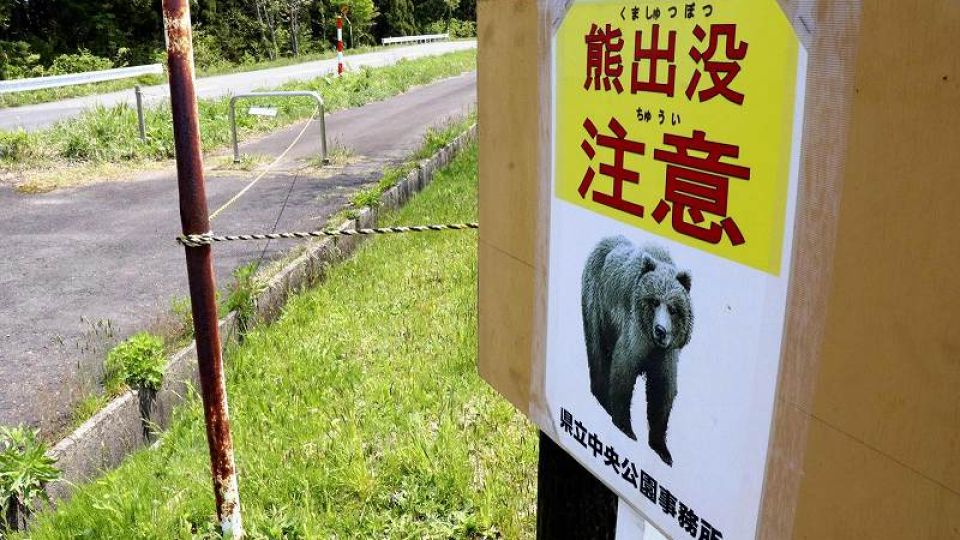July 16, 2025
AKITA – The fruiting of beechnuts, one of the main food sources for bears, is expected to be at the lowest level on a four-tier scale in five prefectures in the Tohoku region this autumn, according to the Tohoku Regional Forest Office’s forecast.
The Akita prefectural government is warning residents in the prefecture, one of those mentioned in the forecast, to be vigilant as bears are likely to appear in urban areas more often due to the poor harvests.
The office surveyed the status of flowering beech trees at 51 sites in the prefecture between April and June, classifying them into four levels. Of those sites, 36 sites, or 70%, did not bear any flowers at all. Thirteen sites were found to have extremely small amounts of flowers, while, at one site, there were many flowers in the upper part of the trees. A large number of flowers were found throughout the trees at one site.
Based on the survey, the beechnuts index registered 0.4, the lowest on the four-level scale.
An index score below 1 indicates extremely poor fruiting.
Five prefectures in the Tohoku region — excluding Fukushima Prefecture, which is outside the office’s jurisdiction — are likely to face extremely low levels of beechnuts. The office will finalize the forecast after surveying the fruiting conditions in the autumn.
“We want [residents] to thoroughly take measures, including not disposing kitchen waste outside their homes,” said the head of the nature conservation division in the Akita prefectural government.

